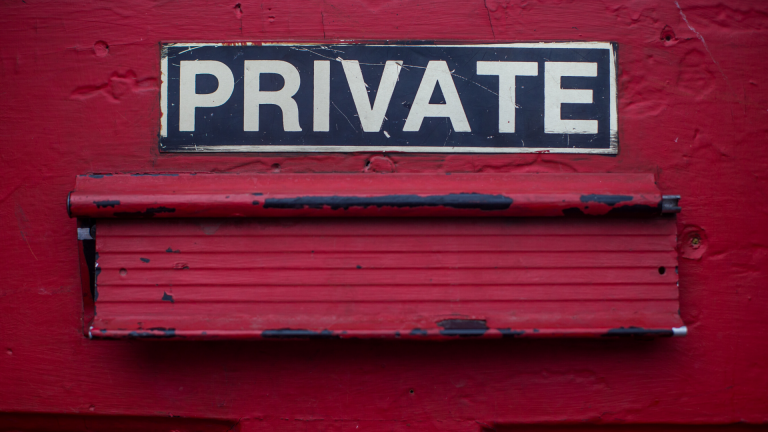In our previous article "
How to Hide From AI" we talked a little bit about the possibility of deleting yourself from the Internet
(spoiler alert: there is no possibility). We discussed some techniques for existing in "incognito mode", and we probably made you give up the chimera to be deleted from the webspace. But don't throw away your pink glasses, we don't want to be extremely harsh - today we are gifting you some hope.
Before we start presenting you our tips, you have to accept the fierce truth - we are all between the devil and the deep blue sea. We’re just trying to make things less wicked by attempting to delete *some* of our digital traces.
Let's say we start from here - you have a few active accounts that you want to keep using, but without getting in trouble.
Save and download the data you want to keep for yourself and then delete the contentwhich you don't want to be public. It's almost 2020 and you may want to take a look at your older posts and photos. You will be surprised by how much society has changed. Тоо many things are not considered acceptable today.
Shortcuts: Request data download from Google, Facebook, Instagram, Twitter. It usually requires 1-2 days. Delete old tweets for free with
TweetDelete.net Maybe you think this old profile in Pinterest being hacked is not a big deal, but perhaps your leaked password is very, very similar to your Gmail password. Older websites, that don’t have a big development team behind their backs and don't get regular updates can hide a big hazard.
Try to remember the passwords of your old accounts or request a new password, then proceed with the account deletion.
Luckily, there's a free service for people who have been on the Internet for too long and it’s called
deseat.me (works with Gmail and Outlook).
Log in with your email and the service will detect most of the websites you have registered with. Decide which accounts you want to delete and deseat.me will automatically send them a letter to delete your data pursuant to your rights under
Article 17.
There are some accounts which the platform can't detect or can’t contact customer support, so you have to manually comb through your mails searching for words like "Welcome", "registration", "register", "password", "log in" and etc. After using the platform, cut its access to your email.
Use the premium service
joindeleteme.com for a quick check in some data collection websites.
Sometimes when you Google your name an unavailable page pop-ups as a result which is very outdated. Other times, there is some information that you rather keep private. Luckily,
there's a way to remove outdated content and delete personal data.Add yourself to the list of
HaveIBeenPwned and receive an email when one of your passwords leaks online. Also, check which websites have already been hacked. Take actions.
One of the most important knowledge for every modern citizen of the 21st century is digital culture. Too bad that’s something they don’t teach you at school. In order to protect your privacy (as far as we can talk about protection and privacy) try to build the useful habit of
changing your passwords every month and start using
two-factor authentication.
There are a lot of your leaked passwords out there that you won’t find about, ever. You can also use a password manager, which in many cases, turns out as one of the best solutions.
Use the pass rule: unique combination made of minimum 8 characters, uppercase and lowercase letters, symbols, and numbers.
Virtual Private Network (VPN) is the ticket to your safer Internet experience. It connects your device to another server of your choice somewhere in the world. This means you can now browse like you're somewhere else and also see banned content that is unavailable for your hometown.
Most importantly, this smart solution helps you be safer from potential online hazards and stops you from being tracked. And yet the only sure thing is that nothing is certain, so always have one in mind, even when it comes to VPNs.
Maybe this one is obvious, but do a quick check of all the third-party sites & apps connected to your accounts and the available log in sessions. You may be sharing quite a lot of data with external platforms and giving usage permissions you aren't aware of.
Check if there are any devices out of your home logged in with your account. Perhaps you
forgot your Twitter open at an ex's house? Some apps show you the location of the login.
This step is harsh but hear us.
DuckDuckGo is a good alternative search engine that won't track you. It even blocks Google's hidden trackers and shows you unbiased results. Plus, annoying
targeted ads will stop hunting you and wait for it...
your personal search history will become personal, for real.
Give it a chance, different searching algorithms can introduce you to a whole new world of information.
Setting strict laws for our online space is a complex, almost impossible task that is in the hands of the lawyers of the future. If we want to achieve an acceptable level of justice, there is a need for an absolute change in the structure of the judiciary and more narrow tech law professionals.
If you do not believe that we still need such a major restructuring of regulations around the world, then we will remind you that just a few months ago Elon Musk's project Neuralink (with end-goal connecting brains with computers) announced its teamwork with Facebook to build mind-reading tech solutions.
Do it now, because progressively things will become harder and harder to figure out.
Keep in mind that according to GDPR your data can be kept by a platform if it has undergone an appropriate process of anonymisation or when your data is necessary for research and other scientific purposes.
He sees you when you're sleeping, he knows if you're awake...
The bad part of computers’ infection is that it rarely comes with symptoms and is difficult to notice with the naked eye of a layman. We suggest you install good anti-malware/antivirus software such as
Avira,
AVG,
Avast,
Malwarebytes,
Kaspersky or
Norton Security.
Of course, you can try doing a simple search yourself: Open the windows search bar and type in "Msconfig" and if something suspicious comes up - uninstall it. Make sure to check the "TEMP" (temporary) folder.
These, of course, are a few common tips. Try reading more about this topic, but only if you really believe you're being a spyware target.
There is no point in being overly paranoid, but these tips are useful for anyone who wants to keep their private life private and has a reason to worry.
Keep in mind that constant monitoring requires a constant flow of energy - check for bugs, take a look at your power strips and seek for unknown wires in hidden places (for example walls).
For an advanced scan think about using RF Bug and Hidden Camera Detectors and destroy spy devices with needle-nosed pliers. Look for infrared lights with your phone's camera. Don't share your Wi-Fi, don’t use public networks. Buy or
DIY a cover for your camera.
If you made it that far, we have to clarify that this publication is not intending to cause chaos, panic or paranoia, but simply to inform the public of potential threats and measures that may be taken in vulnerable situations and certain scenarios. The showcased tips are simple, common security techniques that can be done by anyone.
If you're interested in learning about some extra security tips, check out this Twitter thread by the user @somenerdliam.
Be cautious and considerate when browsing. Sharing is caring, but oversharing can lead to complications. Keep in mind that when you're online you're not alone. Be safe.







